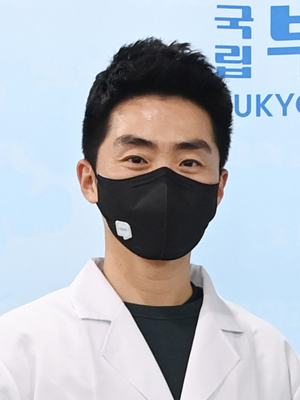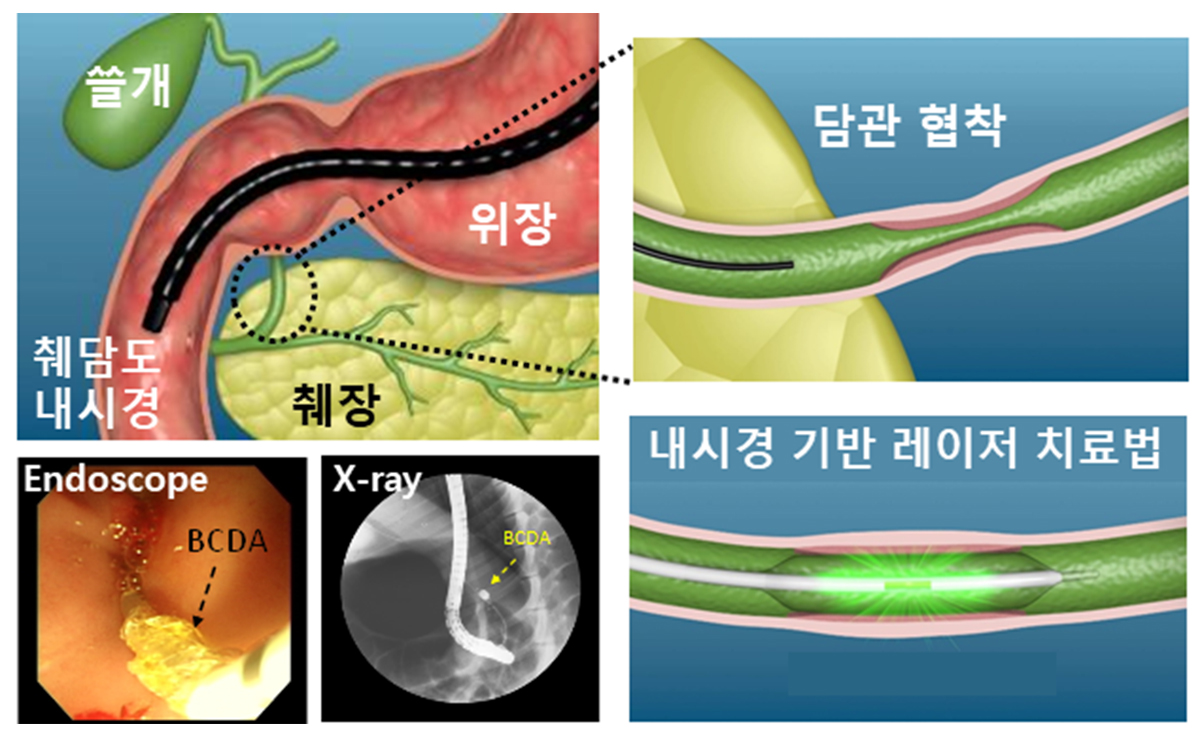연구/산학
PKNU Research 1000
| Kang Hyun-Wook | Developed an endoscopic laser treatment of biliary stricture | |||
| 작성자 | 대외협력과 | 작성일 | 2021-12-31 |
| 조회수 | 1092 | ||
| Kang Hyun-Wook | Developed an endoscopic laser treatment of biliary stricture | |||||
 |
대외협력과 |  |
2021-12-31 |  |
1092 |
PKNU newly developed an endoscopic laser treatment of biliary stricture
Professor Kang Hyun-Wook

A research team from the Department of Biomedical Engineering at Pukyong National University (President Jang Young-Soo) has developed a new endoscopic laser treatment that can shorten the recovery period and reduce costs in the treatment of biliary stricture, drawing attention from the academic community.
Pukyong National University has announced that Professor Kang Hyun-Wook of the Department of Biomedical Engineering and Researcher Van Gia Truong, who completed a doctorate in the Department of Industry 4.0 Convergence Bionics Engineering, developed a new laser treatment technology based on an endoscope and conducted a clinical trial and it has been approved of a class 3 medical device trial plan (IND) by the Korea Food and Drug Administration. A Class 3 medical device is classified as a medical device that can be inserted into the human body for a certain period of time or has a high potential risk, therefore, the approval of the clinical trial plan for this device means that clinical trials for commercialization of medical devices will be accelerated, not at the laboratory level. This stricture of bile duct is a disease with a high risk of early death, with symptoms such as malnutrition and jaundice due to the biliary drainage inability. Currently, this is treated with endoscopic retrograde cholangio-pancreatography (ERCP), which is intubated with a stent, but there are limitations in that the stent needs to be replaced every 6 months, and the procedure is frequent and expensive due to problems with stent movement and blockages.
The laser treatment technology developed by the research team is an effective endoscopy-based local therapy using a light delivery device (BCDA) fused with an optical fiber and a catheter to uniformly deliver laser light to the inner wall of the bile duct to perform contact-free thermotherapy, while at the same time expanding the stenosed tissue with a catheter. As a result of preclinical testing, treatment efficacy has been confirmed with uniform tissue expansion treatment, and initial stability has been also secured by minimizing complications such as inflammatory reaction and perforation. The research team expects that by applying this technology, it will be possible to improve the quality patient's life and reduce socio-economic costs by shortening the recovery period. The research was carried out with support from the Health and Medical Technology R&D Project (hosted by Prof. Jeong Seok of Inha University Hospital) and the National Research Foundation's Key Research Center Support Project (hosted by Professor Jeong Won-Kyo, Pukyong National University). The research team received approval for a clinical test plan hosted by Bluecore Company Co., Ltd., a company specializing in medical device manufacturing, and plans to conduct clinical trials from next year based on this.
